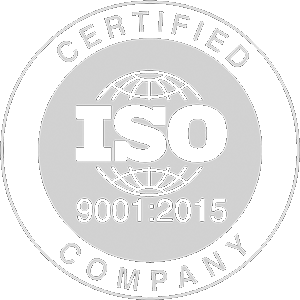The chemical industry relies on materials that can survive some of the harshest operating environments in manufacturing. PTFE is one of the few materials that can handle the full spectrum of industrial chemicals, including strong acids, oxidizers, and reactive gases, without degrading or reacting.
PTFE’s chemical inertness makes it the material of choice for gaskets, pump housings, pipe linings, and reactor seals. It is non-reactive even at high temperatures and pressures, allowing for longer equipment life, fewer shutdowns, and safer working environments.
Its versatility allows it to function in both static and dynamic environments, and its long-term durability makes it a cost-effective solution in processing plants that demand 24/7 uptime.
- Exceptional Chemical Resistance: Withstands exposure to nearly all corrosive agents including acids, bases, and solvents.
- Thermal Stability: Operates reliably in extreme temperatures ranging from -200°C to 260°C.
- Low Permeability: Prevents gas and liquid transmission, safeguarding sensitive processes.
- Non-stick Properties: Reduces material buildup on surfaces and allows for easy cleaning.
- Electrical Insulation: Maintains dielectric performance in high-voltage chemical equipment.
- Agitators and Stirrers: PTFE-coated agitators and stirrers are used in chemical reactors, as they can withstand the corrosive chemicals and high temperatures used in many chemical processes.
- Chemical Containers and Piping: PTFE is used to make storage tanks, vessels, and piping systems that handle corrosive chemicals. Its resistance to a wide range of chemicals makes it a suitable material for storing and transporting aggressive substances.
- Coatings and Linings: PTFE coatings can be applied to various equipment surfaces, such as pumps and mixers, to provide protection against chemical corrosion and to reduce adhesion.
- Electrolysis Cells: PTFE is used in electrolysis cells where aggressive chemicals and high temperatures are involved, providing an insulating and chemically resistant barrier.
- Expansion Joints: PTFE expansion joints are used in chemical plants to compensate for thermal expansion and contraction in piping systems while resisting chemical attack.
- Filter Membranes: PTFE membranes are used in chemical filtration processes. They provide high chemical resistance and can be used in aggressive chemical environments.
- Gaskets and Seals: PTFE gaskets and seals are used in chemical processing equipment to prevent leaks and ensure a secure, chemical-resistant seal in pumps, valves, and flanges.
- Heat Exchangers: PTFE is used in heat exchangers and condensers that handle corrosive liquids. Its non-stick properties help reduce fouling and facilitate heat transfer.
- Laboratory Equipment: PTFE is used in the construction of laboratory equipment such as beakers, flasks, and stirring bars due to its chemical resistance and non-stick properties.
- Lining Materials: PTFE lining is applied to the interior surfaces of pipes, fittings, and tanks to protect the underlying material from chemical attack. This is especially important in the transportation of corrosive chemicals.
- Pump Components: PTFE is used to make pump components such as diaphragms, impellers, and shaft seals, as it resists chemical attack and provides lubricity for moving parts.
- Tubing: PTFE tubing is used for the transfer of highly reactive chemicals because of its inert nature and resistance to chemical corrosion.
- Valve Seats and O-rings: PTFE is used for valve seats and O-rings in chemical valves, where it can withstand the corrosive nature of the chemicals being processed.
- Corrosion Protection: Extends equipment life by shielding components from chemical attack.
- Process Integrity: Maintains chemical purity and prevents contamination.
- Reduced Downtime: Long-lasting components reduce replacement frequency and maintenance.
- Operational Safety: Non-reactive properties help mitigate risks of leaks or failures.
- Industry Versatility: Performs across petrochemical, specialty chemical, and industrial plants.
PTFE is a cornerstone material for chemical processing operations, offering unmatched protection and performance in corrosive, high-demand environments. Whether it’s used for sealing, lining, or insulation, PTFE ensures long-term efficiency and safety across the chemical industry.
